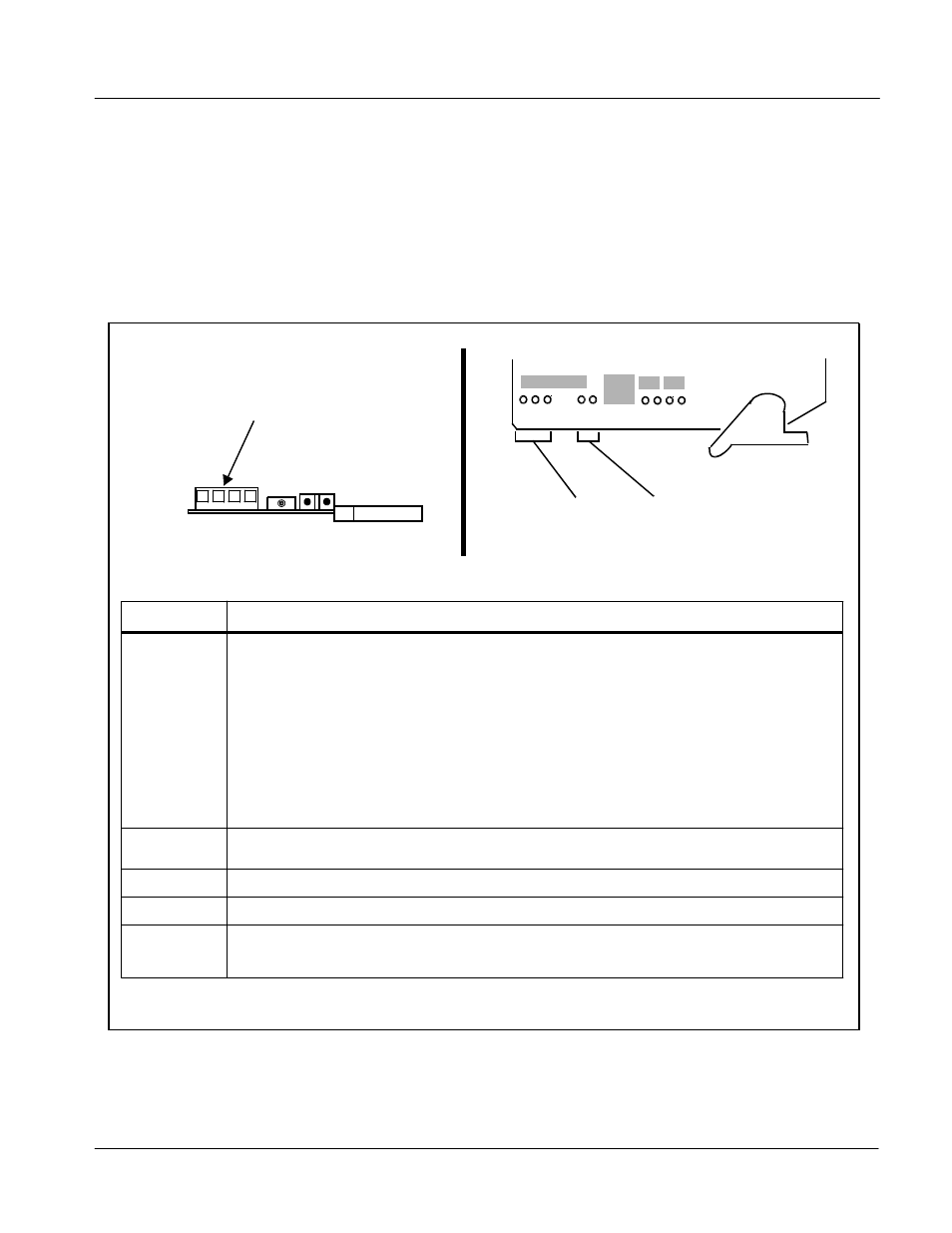Operating instructions – Sierra Video UPC-166 User Manual
Page 115

Operating Instructions
Troubleshooting
UPC-166 Card Edge Status/Error Indicators and Display
Figure 3-10 shows and describes the UPC-166 card edge status indicators
and display. These indicators and the display show status and error
conditions relating to the card itself and remote (network) communications
(where applicable). Because these indicators are part of the card itself and
require no external interface, the indicators are particularly useful in the
event of communications problems with external devices such as network
remote control devices.
Indicators
Indicators
Figure 3-10 UPC-166 Card Edge Status Indicators and
Display
3-71
UPC-166-OM
(V4.0)
R
M
T
RE
F
E
RR
6
25
5
25
4-Character Alphanumeric Display
Status/Error
Input Format
Item
Function
Alphanumeric
Display
Displays 4-digit alphanumeric code indicating status or errors as follows:
• E0XX: Video Errors
• E002: Video Acquiring Lock
• E1XX: Audio Errors
• E100: Analog Input Clipping
• E2XX: Frame Sync Errors
• E200: Reference is Incompatible with Input Video
• E201: Reference Standard is Invalid/No Reference Present
• E202: Reference Standard is 720p2398 (a reference standard not supported by the framesync)
• E203: Reference Standard is 720p2997 (a reference standard not supported by the framesync)
RMT LED
Blue LED flashes when UPC-166 is receiving control message from remote network control (e.g.,
DashBoard
™ or Remote Control Panel
REF LED
Blue LED illuminates indicating UPC-166 is receiving valid reference when set up for framesync operation.
ERR LED
Red LED illuminates when UPC-166 unable to lock to framesync, or unable to lock to input standard.
Input Format
LEDs
Two blue LEDs indicate the input signal raster format being received and locked onto by the UPC-166 (525,
625). Continuous cycling of the LEDs indicates the UPC-166 has not locked onto a particular format (as in
the case of no signal input).
UPC-
166
